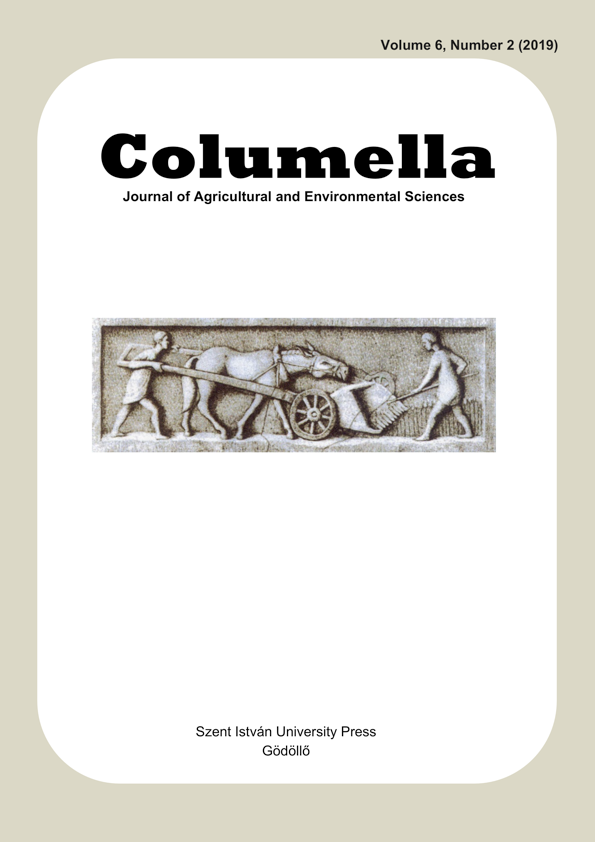Investigations on the wastewater of a flow-through fish farming system
DOI:
https://doi.org/10.18380/SZIE.COLUM.2019.6.2.11Keywords:
intensive fish culture, wetland, wastewaterAbstract
European and Hungarian fish consumption has been increasing for years. Intensive fish producti- on is one potential methods to meet the ever-increasing demand of Hungarian consumers. However, for the sustainable growth of production, it is necessary to tackle one of the important problems of this type of fish production: reducing the nutrient content of the effluent water. Wetland can be a perfect application to solve the problem. In this research, we examine the efficiency of wastewater treatment in a fish farm where the effluent feeds the Szarvas-Békésszentandrás oxbow system. The current theoretical nutrient retention capaci- ty of the wetland—based on literary data—is 53–61% for nitrogen (N), 76–84% for phosphorus (P) and 80– 91% for chemical oxygen demand (COD). In recent years, the production capacity of the plant has increased to 500 T/year and a new pre-settling and drum filter were added to the filtration, and thus the deterrent effect of the filtration system in 2014–2017 was 74% for "N", 63% for phosphorus and 83% for COD. The effici- ency of the wetland was demonstrated by measurements carried out by an accredited independent laboratory proving that no limit value has been exceeded for the last 15 times. We can conclude that the wetland is able to carry out its tasks in the long term, independently of the season, and to ensure that effluent water does not pose a significant impact to the natural environment.
Downloads
Published
Issue
Section
License
Copyright (c) 2019 Balázs Csorbai, Béla Urbányi

This work is licensed under a Creative Commons Attribution-NonCommercial-NoDerivatives 4.0 International License.






